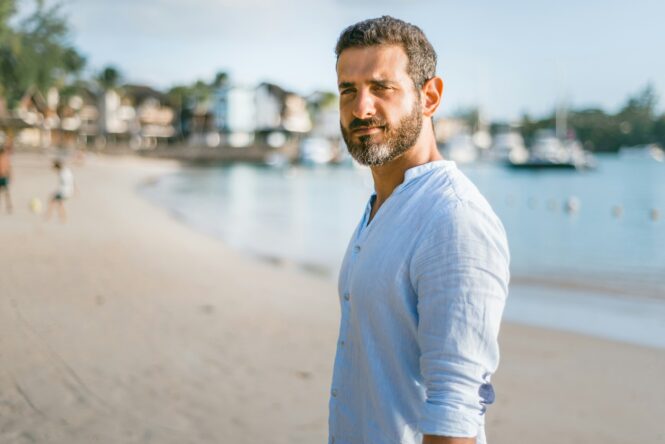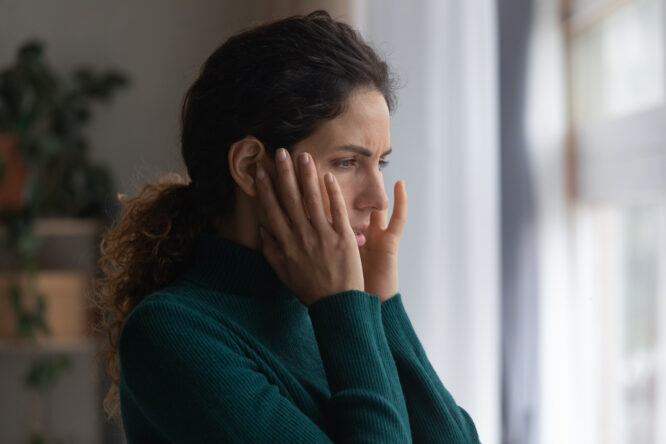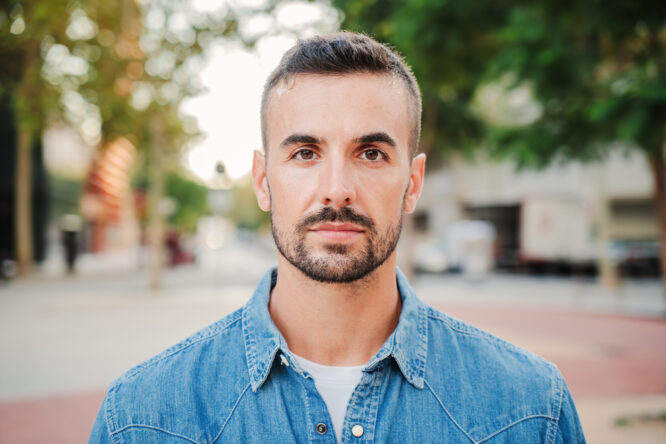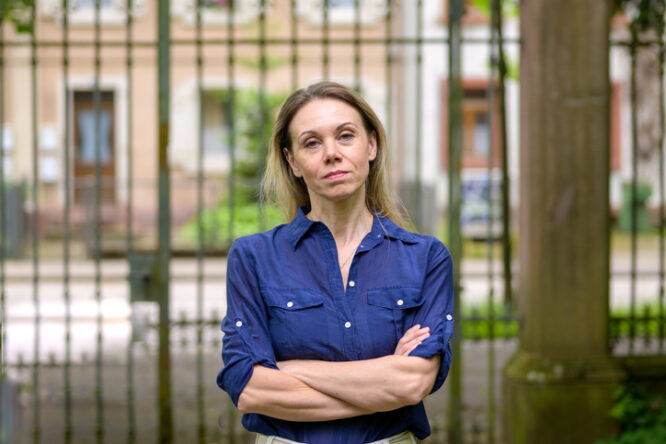When someone says, “I don’t need anyone,” it can sound confident, guarded, or even a bit cold.

However, often, that statement hides a more complicated story. It’s rarely about genuinely wanting to go through life alone. More often, it’s a kind of emotional armour, shaped by past experiences and quiet survival strategies. Whether it’s about trust, fear, or disappointment, here are some of the reasons someone might push people away while convincing themselves they’re fine on their own.
1. They were let down one too many times.

When someone’s been repeatedly let down—whether by family, friends, or romantic partners—it’s not surprising if they eventually give up on depending on anyone. Saying “I don’t need anyone” can feel like a safer bet than risking another heartbreak or disappointment.
It’s not always about bitterness. It’s more about protection. If trusting other people has ended in pain, closing off emotionally can start to feel like the only way to stay intact. Over time, that protective distance can get mistaken for genuine independence, even when it’s more about hurt than strength.
2. They grew up having to be their own support system.

Some people never had the luxury of emotional safety nets. If you grew up in a household where no one checked in on your feelings or offered support when things got hard, you learn to rely only on yourself because there wasn’t anyone else to lean on.
That self-reliance becomes second nature. As an adult, you might tell yourself you don’t need anyone, not because you truly prefer it, but because needing someone has never felt like a real option. It’s not defiance, really. It’s what survival taught you.
3. They associate vulnerability with weakness.

In some environments, being vulnerable was seen as something to avoid — a risk, a flaw, or even a threat. If someone was raised to believe that showing emotion made them less respected or less safe, they might shut it down entirely.
So when they say “I don’t need anyone,” it’s often code for “I can’t afford to be vulnerable.” They probably want connection, but they’re afraid being open will come back to bite them. Especially if they’ve seen vulnerability used against them before.
4. They were taught to be the strong one.

Some people are handed other people’s emotional baggage from a young age. If they were expected to be the reliable one, the fixer, or the emotionally mature child in the room, they might’ve learned early on that their own needs should take a back seat.
Now, as adults, they keep up that role without even realising. Saying “I don’t need anyone” might actually mean “I’m used to no one being there for me, so I’ve stopped expecting it.” Strength becomes an identity, but sometimes it’s masking a very old kind of loneliness.
5. They’re afraid of being a burden.

When someone grows up being made to feel like their emotions or needs are “too much,” they often carry that into adulthood. They worry that asking for help or support will annoy people, push them away, or make them look needy.
So instead, they say things like “I don’t need anyone” to avoid the shame of being perceived as difficult or high-maintenance. As much as they might crave connection, the idea of needing someone feels like it comes with a price they’re not willing to pay anymore.
6. They’ve mistaken hyper-independence for healing.

After a painful relationship or experience, it’s common to swing too far in the other direction. Someone might convince themselves that being totally self-sufficient is the healthiest response, thinking it means they’ve grown or moved on.
However, healing isn’t about shutting everyone out. When “I don’t need anyone” becomes the mantra, it can actually be a sign that the hurt is still very much present—it’s just been repackaged as empowerment. Real healing usually leaves space for connection again.
7. They don’t trust people to show up consistently.

If someone has experienced a lot of inconsistency—friends who flaked, partners who ghosted, family members who were emotionally absent—it’s no wonder they’d stop expecting people to stick around. The message they’ve absorbed is: don’t count on anyone because they won’t stay.
So, they pre-emptively detach. They say they don’t need anyone not because it’s true, but because it feels less painful than being let down again. It’s not arrogance; it’s emotional self-preservation in the face of chronic unreliability.
8. They’re trying to avoid rejection.

Fear of rejection runs deep. For some, it’s easier to reject connection entirely than to risk asking for it and being turned away. Saying “I don’t need anyone” becomes a way to take control of the narrative before someone else can make them feel unwanted. That can lead to a lonely kind of independence—one that looks strong from the outside, but often hides a deep fear of not being chosen, supported, or loved. Keeping people at arm’s length can feel safer than hearing a no.
9. They’ve internalised shame about their own needs.

People who’ve experienced emotional neglect or criticism around their needs can grow up believing that needing anything at all is a character flaw. They might feel embarrassed when they’re upset, hungry for connection, or overwhelmed.
To avoid those feelings of shame, they cut the whole thing off. They tell themselves they don’t need anyone because admitting that they do brings up feelings they don’t want to deal with. They have needs, but they don’t know how to feel okay having them.
10. They’ve been in toxic relationships.

If someone has been manipulated, controlled, or emotionally abused in past relationships, they may associate closeness with danger. Depending on other people might now feel like a trap—one where they’ll lose themselves or get hurt again.
Instead of risking intimacy, they default to complete independence. It feels like the safest option. But deep down, the avoidance is rooted in past harm, not genuine disinterest in human connection. They still want to be close to other people; they just don’t trust that it’s safe anymore.
11. They don’t know how to ask for help.

It’s surprisingly common to grow up without ever being shown how to ask for help in a healthy way. Some people were either ignored when they asked or shamed for needing anything at all, so eventually, they stopped trying. As adults, they may insist they don’t need anyone, but it’s often because the idea of reaching out now feels completely foreign or uncomfortable. They’re desperate for support, most likely, but they’ve never had a safe blueprint for how to receive it.
12. They feel safest when in control.

Needing someone means letting go of control, at least a little. And for people who’ve learned to rely on themselves to stay emotionally or physically safe, that can feel terrifying. Independence becomes a way to keep a firm grip on their own world.
So when they say “I don’t need anyone,” it’s often about maintaining control. It keeps things predictable and manageable. Letting someone in might feel like opening the door to chaos, even if it also opens the door to comfort and connection.
13. They’re still grieving.

Sometimes, someone says “I don’t need anyone” not because they don’t care, but because they’re still quietly grieving something—a lost relationship, a betrayal, a parent who was never really there. The statement is more of a wall than a truth.
That grief can harden into cynicism or emotional distance, especially if the loss felt deeply personal or unjust. They’re not always angry; they’re just still hurting, and independence feels easier than navigating the emotional landmines of connection.
14. They don’t believe they’re loveable.

At the root of it all, this is often the deepest reason. If someone doesn’t believe they’re loveable— really, truly loveable—they might decide it’s better to not need anyone at all. That way, they can avoid the pain of being “proved right” if someone walks away. It’s not always visible on the surface, but underneath the tough exterior is often a fragile sense of self-worth. Saying they don’t need anyone can be a cover for feeling like no one would stick around even if they did.




